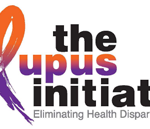The Centers for Disease Control and Prevention (CDC) has awarded the American College of Rheumatology’s (ACR) The Lupus Initiative (TLI) with a five-year grant to support the development of a national, grassroots program targeting primary care providers, persons with undiagnosed Lupus and rheumatology health care providers. The program will have three components:
- Immediate dissemination of educational and training materials currently available on Lupus to state and local organizations throughout the country,
- Development of a general awareness campaign to help the public identify signs and symptoms of Lupus and seek medical care, and
- Development of community-tailored activities that will be piloted in select communities during the first year of the initiative.
“Not only is Lupus often misdiagnosed, but patients commonly see at least three providers before diagnosis, many of whom are primary and emergency care providers who haven’t received significant training in diagnosing Lupus,” said Sheryl McCalla, TLI Project Director and ACR Senior Director, Collaborative Initiatives. “These providers may have received an average of 90 minutes of training on Lupus in the first and second years of medical school combined. This often contributes to delays in timely and accurate diagnosis, both of which are critical to helping patients manage and live with this condition. We are hoping to change that by educating both the public and providers on what to look for and the best steps to take when they suspect Lupus.”
Lupus is an autoimmune disease in which the immune system produces antibodies to cells within a person’s own body, leading to widespread inflammation and tissue damage. While the disorder can occur within any gender or ethnicity, women are affected eight times more often than men, and people of color are affected in higher numbers than whites, especially African Americans, Hispanics/Latinos and American Indian/Alaska Native populations. Additionally, women are often affected between age 15–40 during their prime years for education, career advancement and childbearing. And people of color with Lupus are more likely to suffer from comorbidities such as depression, cardiovascular disease and diabetes in additional to high prevalence and mortality rates.
The first phase of the program is scheduled to start in November and will focus on the national dissemination of TLI’s existing evidence-based education materials and programming. Foundational work for the next phases, community activities to pilot and an awareness campaign, are slated to begin in early 2016. The ACR plans to collaborate with the Lupus Foundation of America—who was also awarded grant funding—on the development of the awareness campaign.
“We know that persons with Lupus experience better outcomes when they are quickly treated by knowledgeable providers and taught self-management skills that allow them to be active participants in their own care” said McCalla. “It is our personal goal to ensure they not only have these tools but proper access to physicians who can help them.”
For providers, existing materials include a variety of continuing medical education (CME) platforms, a free maintenance of certification (MOC) module worth 10 MOC credits, traditional and interactive case studies, a video library and PowerPoint presentations. For persons with Lupus, their families and caregivers, educational resources include patient-centric videos, a lupus-specific mobile application to track symptoms and medications, infographics, fact sheets on various aspects of lupus management, and more.
“These resources were developed by a diverse body of experts in rheumatology, dermatology, nephrology and health disparities, and they have undergone rigorous expert review and evaluation by the target audiences they are designed for,” said S. Sam Lim, MD, MPH, TLI Consortium Chair and Associate Professor of Medicine and Epidemiology at Emory University. “We have made great strides in the many communities that are already utilizing these materials to educate their providers and community, so we’re happy to now have the resources to expand this program nationally—particularly to those areas that currently have a shortage of rheumatologists trained to treat lupus.”
Twenty-five rheumatology state societies, Area Health Education Centers, Arthritis Foundation chapters and the National Association of Chronic Disease Directors have already committed to participate in the immediate effort to implement Lupus education in their local communities and provider networks.
“While there has been much progress in improving the management of lupus over the past decade, we still have much work to do to improve early detection, particularly among racial minorities, who experience strong disparities in prevalence and mortality”, said John W. Robitscher, MPH, CEO of the National Association of Chronic Disease Directors. “We eagerly look forward to working with the American College of Rheumatology on this important project.”
Established in 2009, TLI has received multiple awards from the U.S. Department of Health and Human Services to develop educational resources for medical providers and for persons with lupus and their families and caregivers to assist them in the recognition, diagnosis, treatment, and management of lupus. Most recently, the ACR was awarded a grant by the Office of Minority Health (OMH) to expand its educational resources for providers. The ACR also played an active role in the development of the CDC’s National Public Health Agenda for Lupus.
For more information on how to join the network of providers, patient organizations and community health organizations dedicated to increasing Lupus education and awareness; contact The Lupus Initiative at [email protected]. To schedule an interview with a Lupus expert or learn more about the upcoming activities that will be supported by this grant contact Jocelyn Givens at [email protected] or 404-633-3777 ext. 810.
About TLI
The Lupus Initiative is a multi-faceted education program led by the American College of Rheumatology that provides medical professionals, educators, and students with evidence-based programs and easy-to-use educational resources to ensure the early and accurate diagnosis, effective treatment and management of patients with lupus, regardless of age, gender, race, ethnicity or socioeconomic status, so that they may potentially lead healthier lives.
The Lupus Initiative is funded in part by a grant from the U.S. Department of Health and Human Services through its Office of Minority Health. The Lupus Initiative is guided by experts in medicine, public health, academia, research, patient advocacy, and health disparities. For more information about The Lupus Initiative, visit www.thelupusinitiative.org.
About the ACR
The American College of Rheumatology is an international medical society representing over 9,400 rheumatologists and rheumatology health professionals with a mission to Advance Rheumatology! In doing so, the ACR offers education, research, advocacy and practice management support to help its members continue their innovative work and provide quality patient care. Rheumatologists are experts in the diagnosis, management and treatment of more than 100 different types of arthritis and rheumatic diseases. For more information, visit www.rheumatology.org.
About the National Association of Chronic Disease Directors
The National Association of Chronic Disease Directors (NACDD) is a nonprofit public health organization committed to serve the chronic disease practitioners in each state and U.S. jurisdiction. Founded in 1988, NACDD connects more than 6,000 chronic disease professionals to advocate for preventive policies and programs, encourage knowledge sharing and develop partnerships for health promotion. NACDD is a national leader in mobilizing efforts to reduce chronic diseases and their associated risk factors through state and community-based prevention strategies. Visit www.chronicdisease.org for more information about national and state chronic disease prevention and control programs.
Media Contact: Jocelyn Givens, 404/633-3777, ext. 810, [email protected]

